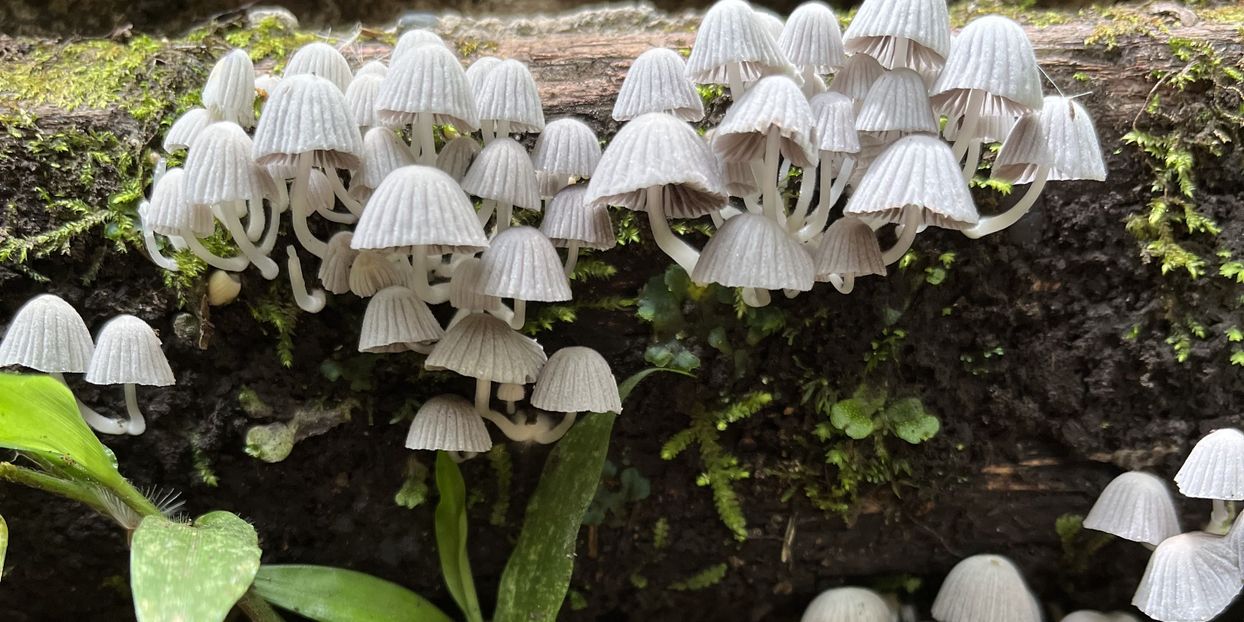
News From the Network
![[Translate to english:] Sojabohnen [Translate to english:] Sojabohnen](/fileadmin/_processed_/1/c/csm_Soja_ZALF_4f94ba7bcb.jpg)
An opportunity in climate change: Soy production to increase in Europe in the future
01/04/2023 · ZALFClimate change requires a rethink of crop production towards varieties and crops that are better adapted to heat and drought. Soybean is an arable crop that thrives in warm conditions and provides itself with nitrogen, an important plant nutrient that otherwise farmers would have to fertilize. A study published by the Leibniz Centre for Agricultural Landscape Research (ZALF) in the scientific journal "Global Change Biology" shows that in the long term, more and more arable land in Europe will become suitable for soy production. This effect exceeds the yield losses that are to be expected due to increasing heat and drought, especially in southern Europe. According to the authors of the study, this would enable the EU to do without a large proportion of soybean imports from Brazil and the USA in the future.
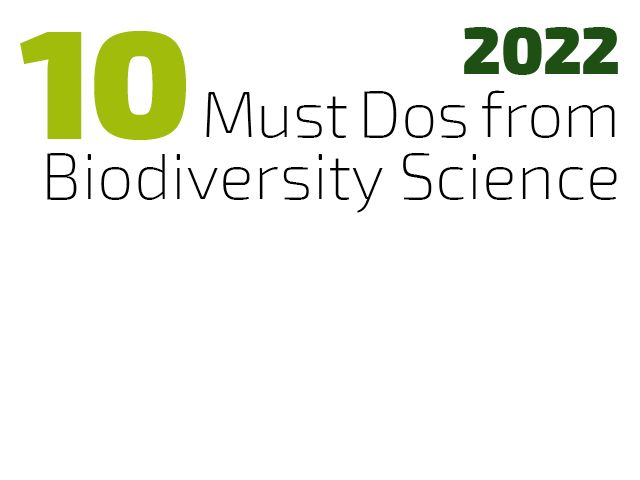
10 Must Dos from Biodiversity Science: Leibniz Research Network Biodiversity addresses policy-makers with concrete demands
12/05/2022 · Leibniz BiodiversityThe authors of 10 Must Knows from Biodiversity Science (2022, 10.5281/zenodo.6257527) developed their scientific findings further into 10 Must Dos from Biodiversity Research (10MustDos). These 10MustDos correspond to ten concrete recommendations for policy action that can be implemented in the short term. They are intended to serve as a guide for the 15th UN Biodiversity Conference in Montreal in 2022 and also to help in practical policy-making in Germany, Europe and worldwide by providing sound scientific findings to protect global biodiversity and stop the man-made extinction of species. The proposed solutions open up opportunities for action that are in line with the goals of the UN Decade for Ecosystem Restoration and feed into the 17 Sustainable Development Goals (SDGs) to be implemented by all nation states by 2030 to address the biodiversity, climate and equity crisis.
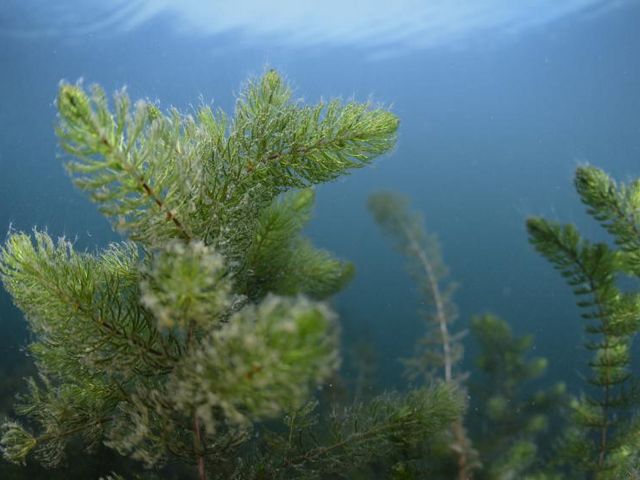
Climate change: More algae and fewer aquatic plants promote methane emissions
11/02/2022 · IGBIn recent years, submerged macrophytes have disappeared in many shallow lakes around the world, with more algae and free-floating plants growing instead. A Chinese team, in collaboration with IGB researcher Sabine Hilt, has shown in a large mesocosm experiment how heat waves, nutrients and pesticides promote algae growth and cause aquatic plants to dwindle. This shift in plant types may increase the total amount of greenhouse gas emissions from shallow lakes, as Sabine Hilt and Dutch colleagues demonstrated in another mesocosm experiment.
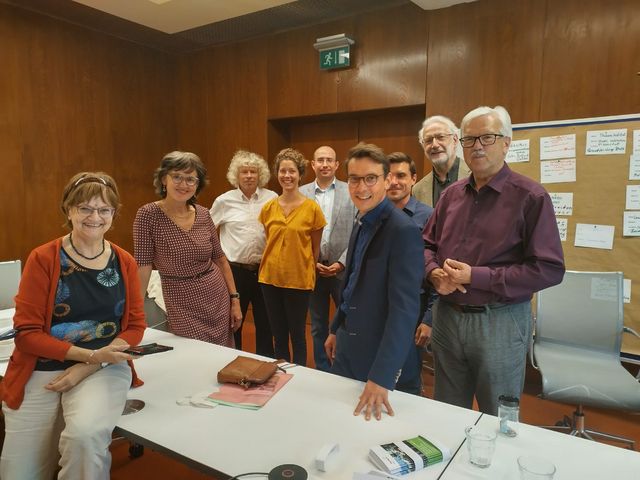
Appreciating biodiversity: Scientists explore how economic accounting can be ecologically modernized
08/19/2022 · IOER together with UFZ, IZT and VBAIntact ecosystems – such as clean, species-rich rivers or near-natural forests – are the subject of environmental reporting in Germany. Surprisingly, however, they scarcely play any role in national accounting or private sector accounting. This means that the manifold contributions of ecosystems to societal well-being and prosperity are underestimated while at the same time biodiversity is systematically neglected as the basis for nature’s sustainable services to society. In the Bio-Mo-D project, a research alliance is now exploring how corporate and national economic reporting can be expanded to include ecosystem services and biodiversity indicators. The aim is to provide business, political and social leaders with information to make ecologically sustainable decisions – and thus to ensure that sufficient value is placed on nature and biodiversity. The research alliance includes the Leibniz Institute of Ecological Urban and Regional Development (IOER), the Helmholtz Centre for Environmental Research (UFZ), the Institute for Future Studies and Technology Assessment (IZT) and the Value Balancing Alliance (VBA).
![[Translate to english:] PD Dr. Kirsten Thonicke und Eva Rahner vom PIK im Gespräch mit MdB Isabel Mackensen-Geis zu Wäldern [Translate to english:] PD Dr. Kirsten Thonicke und Eva Rahner vom PIK im Gespräch mit MdB Isabel Mackensen-Geis zu Wäldern](/fileadmin/_processed_/2/3/csm_Leibniz_im_Bundestag_MdB_Mackensen-Geis_31052022_ca8080c2ea.jpg)
Leibniz in the Bundestag: Scientists talk to members of the German parliament about the "10 Must Knows from Biodiversity Science"
06/01/2022 · Leibniz BiodiversityAs part of "Leibniz in the Bundestag", three authors of the "10 Must Knows from Biodiversity Science 2022" spoke to members of the German Bundestag. Prof. Dr. Wolfgang Wende from the Leibniz Institute for Ecological Spatial Development (IÖR) spoke to MdB Karlheinz Busen (FDP) about the scientific findings and policy recommendations from the 10MustKnows with a special focus on the role of agriculture. PD Dr. Kirsten Thonicke and Eva Rahner from the Potsdam Institute for Climate Impact Research (PIK) talked to MdB Isabel Mackensen-Geis (SPD) about climate and biodiversity protection in the forest (see photo).
![[Translate to english:] Wüste mit grünem Tal, durch das sich ein Fluss windet. Im Vordergrund Menschen, die im Gegensatz zur Landschaft winzig erscheinen](/fileadmin/_processed_/0/e/csm_Berliner_Erkl%C3%A4rung_Bild_c06442a187.png)
Berlin Declaration: For the Future of Humankind
05/20/2022 · SGN, MfN and LIBThirty years after the first Earth Summit in Rio de Janeiro, biodiversity loss and global climate change are the greatest and most pressing challenges of the future. Nothing less than our very existence is at stake. Under the leadership of the three Leibniz Natural Research Museums, a broad alliance of renowned researchers calls on the German government in its “Berlin Declaration” published today to live up to the special responsibility of the G7 presidency in combating these “twin crises.” The Convention on Biological Diversity (CBD COP15), currently scheduled for the end of August, would offer the historic opportunity for an urgently needed trend reversal in favor of stronger climate and biodiversity protection. In their position paper, the researchers present concrete recommendations for action, with “nature- based solutions” as an essential key to success.
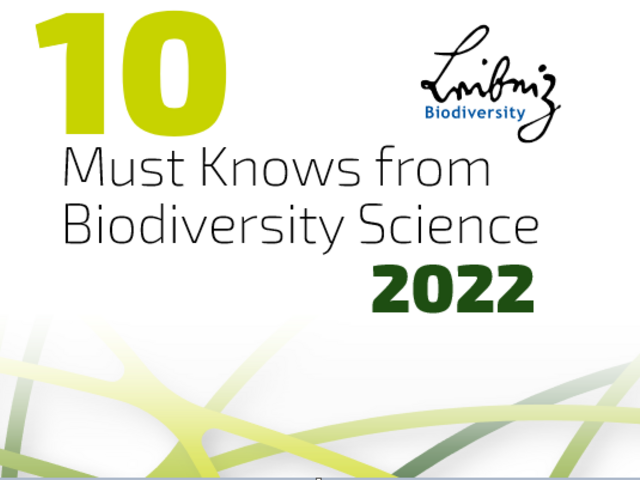
10 Must Knows from Biodiversity Science 2022
03/15/2022 · Leibniz BiodiversityThe “10 Must Knows from Biodiversity Science 2022”, which have now been published for the first time, range from climate stress for German forests and the restructuring of agriculture to the spread of the corona virus from animals to humans. 45 scientists from the Leibniz Research Network Biodiversity and colleagues compiled the inventory on the preservation of nature as the basis of human life. According to the researchers, the report is intended to encourage the dialogue in preparation to the UN Biodiversity Conference in Kunming, China. At the same time, they make concrete demands on politicians.
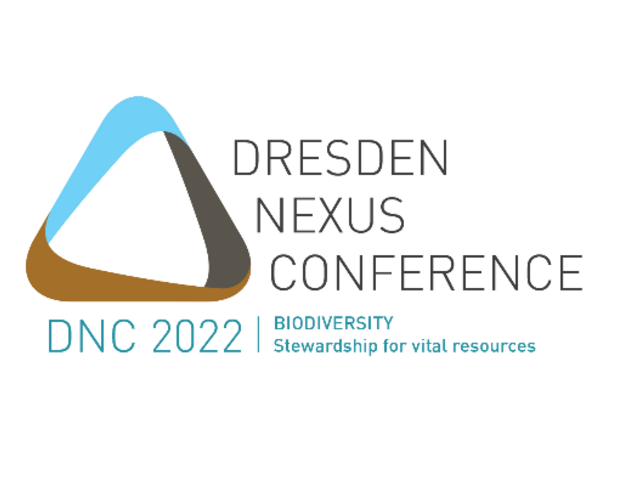
Dresden Nexus Conference 2022: Biodiversity - Stewardship for Vital Resources
01/12/2022 · IÖRThe DNC2022 focuses on strengthening biodiversity with other challenges in society (e.g., climate change, urban and regional development, agri-food and forest systems and circular economy). Under the theme “Biodiversity - stewardship for vital resources”, the fourth Dresden Nexus Conference (DNC) will take place on May 23–25 2022. The programme aims to explore research and practical examples of sustainable resource management in communities around the world and how these management strategies support the achievement of the SDGs. The Leibniz Biodiversity Network supports the event as a conference partner.
